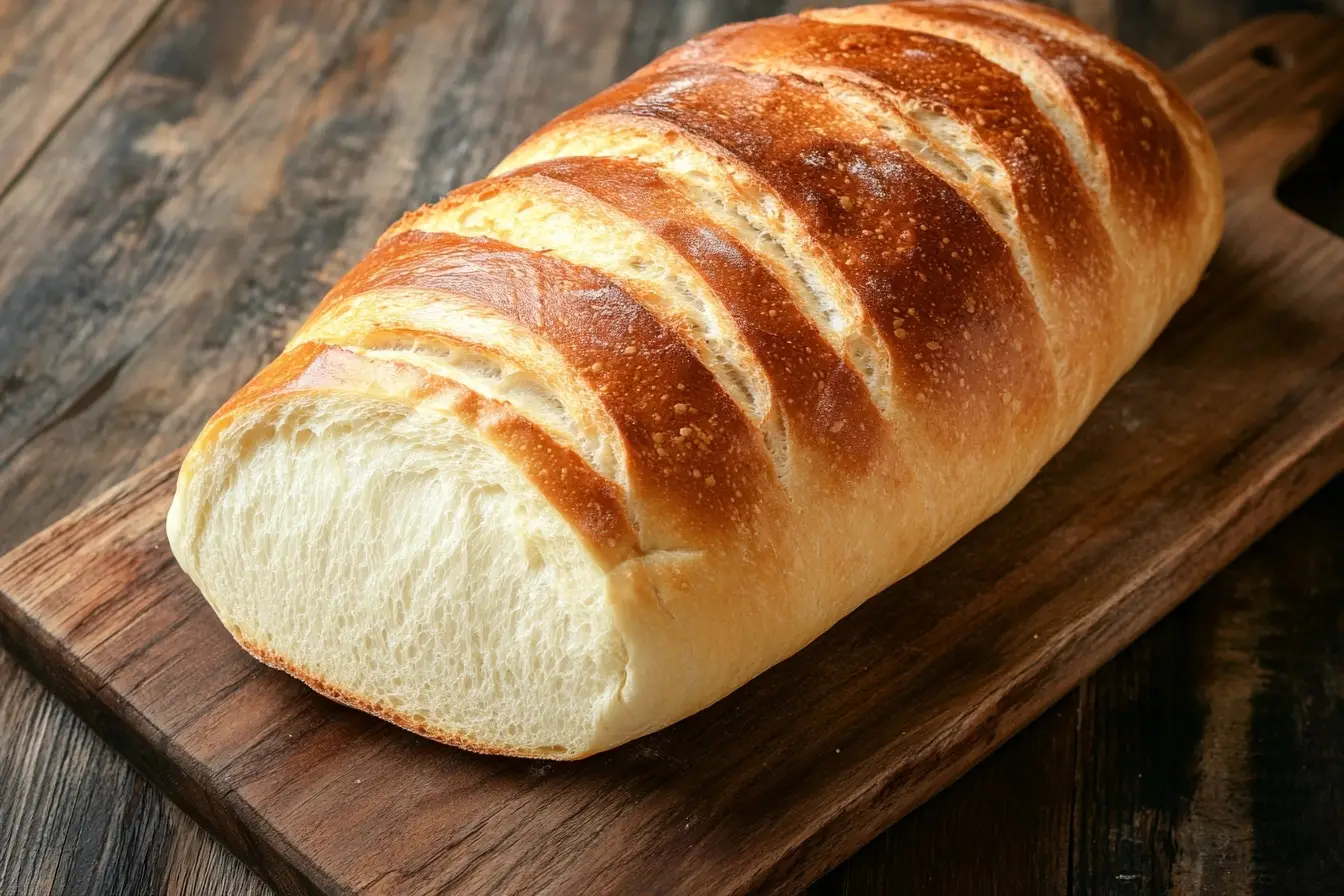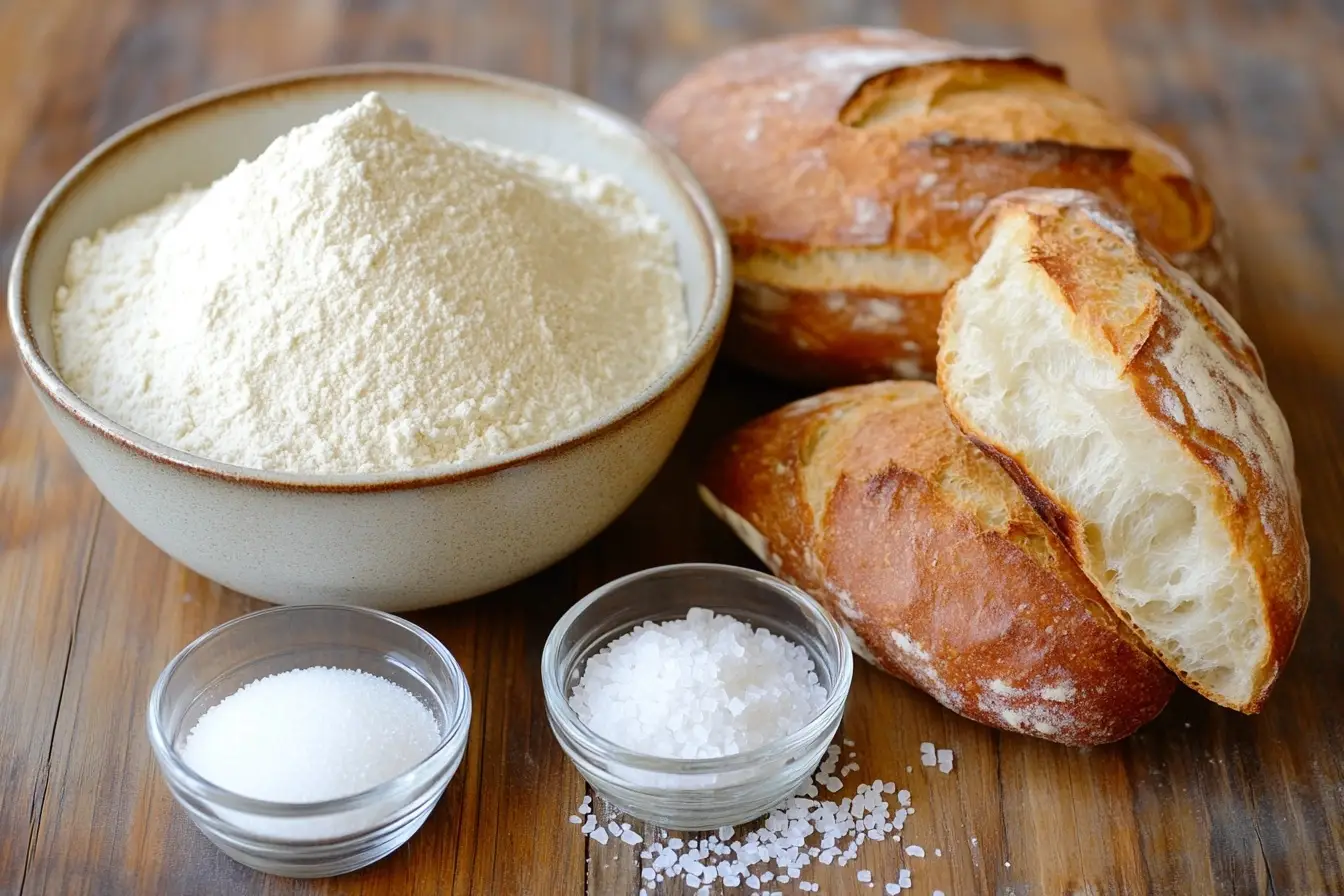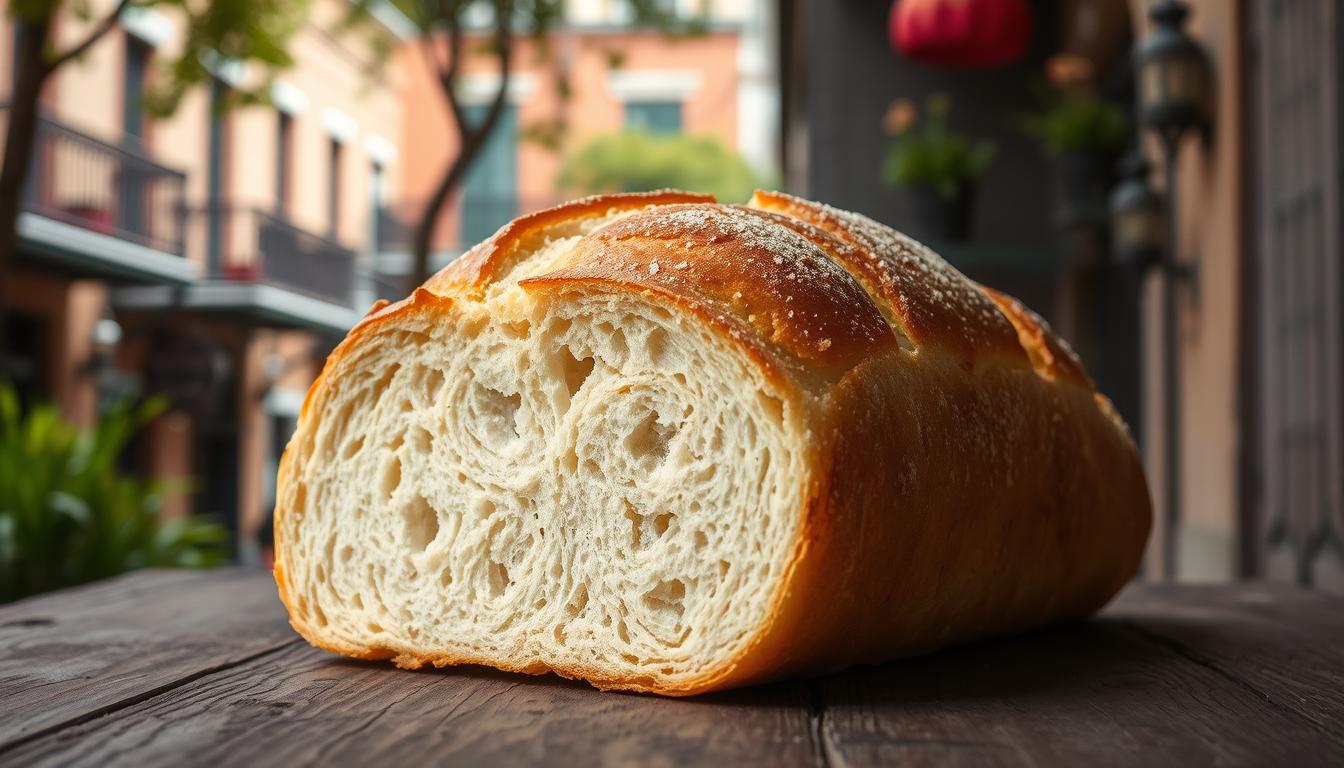New Orleans is famous for its New Orleans French bread. It has won the hearts of both locals and visitors. This bread is a true treasure, showing off Louisiana’s vibrant culture. It combines French and Sicilian flavors with traditional baking methods.
Key Takeaways
- New Orleans French bread is renowned for its exceptional quality and flavor.
- The bread’s unique blend of French and Sicilian influences is a key factor in its distinctive character.
- Meticulous baking techniques, including proofing and fermentation, are crucial to achieving the bread’s signature texture and crust.
- The use of high-quality, locally sourced ingredients contributes to the bread’s exceptional taste.
- New Orleans French bread has become a symbol of the city’s rich culinary heritage and cultural identity.
The Unique Tradition of New Orleans French Bread
New Orleans French bread is a mix of French and Sicilian traditions. Bakers have shared recipes for generations. This blend of cultures has made the bread a favorite in the city.
A Blend of French and Sicilian Influences
New Orleans French bread’s roots are in the city’s cultural history. The French baking methods and Sicilian traditions created a special taste and texture. This mix makes the bread unique.
Handed Down Through Generations
Many family-owned bakeries in New Orleans have been around for years. They keep their recipes and methods alive through each generation.
“Our family’s French bread recipe has been a closely guarded secret for over a century. Each generation has worked to refine and perfect the process, ensuring the quality and authenticity of the end product,”

This dedication to tradition keeps New Orleans French bread special. It’s a big part of the city’s food heritage.
The Ingredients that Make the Difference
The secret to New Orleans French bread lies in its ingredients. High-quality flour, water, yeast, and salt are key. They come together to create the bread’s unique texture and taste.
The flour used is very important. Bakers mix all-purpose and bread flours for the best texture. They also adjust the water-to-flour ratio for a light, airy inside.
Yeast is crucial for the bread’s rise and chewiness. The exact amount and how it’s used are secrets passed down through generations.
Salt adds flavor and balances the other ingredients. The right amount of salt makes the crust crisp and the inside flavorful but not too salty.

New Orleans bakers blend these ingredients with skill. They’ve made a bread that’s loved and a big part of the city’s food culture.
The Art of Baking New Orleans French Bread
Baking New Orleans French bread is a detailed and traditional craft. It involves important steps like proofing and fermentation. These steps create the bread’s crispy crust and soft inside.
Proofing and Fermentation Techniques
Proofing lets the dough rise, a balance of time and temperature. Bakers in New Orleans control this environment. They make sure it’s warm and humid for the dough to ferment well.
This fermentation gives the bread its unique taste and texture. Bakers watch every step, from kneading to the final rise. They make sure the dough is perfect.
The Importance of Oven Temperature and Humidity
After proofing and fermentation, the dough goes into the oven. The oven’s temperature and humidity are key. High heat makes the crust crispy, while controlled humidity keeps the inside soft.
This skill, passed down through generations, makes New Orleans French bread special. It’s a true culinary wonder.
Why is New Orleans French bread so good?
New Orleans French bread is famous for its quality. It combines French and Sicilian traditions. It uses top ingredients and special baking methods passed down through generations.
This bread has won the hearts of many. Locals and visitors love its unique taste and texture.
The bread’s appeal comes from local pride and cultural importance. It shows the city’s rich food heritage. Local bakers, with years of experience, keep the bread’s special qualities alive.
Every part of making New Orleans French bread shows pride in craftsmanship. It has a golden crust and a soft inside. This makes it irresistible.
The bread is perfect on its own or with the city’s famous dishes. It’s a symbol of tradition, skill, and local pride. It’s a culinary gem that delights everyone who tries it.
“New Orleans French bread is not just a loaf of bread; it’s a piece of the city’s soul, baked into every slice.”
The Distinct Flavor and Texture
The New Orleans French bread is famous for its amazing taste and feel. It has a crispy, golden-brown crust and a soft, chewy interior. This mix of textures makes every bite special.
The bread’s taste comes from a special baking method and top-notch ingredients. It combines French recipes with Sicilian touches, passed down through generations.
The Crispy Crust and Chewy Interior
The texture of New Orleans French bread is all about the crispy crust and chewy interior. This perfect mix comes from slow dough development and precise baking conditions.
- The dough’s long fermentation gives it a deep, rich flavor.
- The oven’s temperature and humidity are carefully controlled. This makes the crust crispy and the inside soft.
This bread is a treat for the senses, with its irresistible aroma, flavor, and texture. It’s perfect on its own or with the city’s famous dishes. It’s a true culinary gem.
Serving and Enjoying New Orleans French Bread
New Orleans French bread is more than just a tasty treat. It’s a key part of the city’s rich food scene. You can serving New Orleans French bread with Creole and Cajun dishes, or use it for a po’ boy. Its amazing taste and texture make it a must-have in the Big Easy.
Versatile Accompaniment to Local Cuisine
New Orleans’ food scene is full of flavors, and its French bread is a standout. The bread’s crusty outside and soft inside are perfect with spicy gumbo and jambalaya. It’s also great for po’ boy sandwiches, letting the fillings take center stage.
The bread’s appeal isn’t just savory. It’s also amazing with sweet treats like pralines and beignets. This creates a perfect mix of textures and tastes.
“The bread is the canvas, and the city’s culinary artistry is the masterpiece.”
For locals and visitors alike, serving New Orleans French bread and enjoying French bread is key. It’s a big part of the New Orleans dining experience.
The Best Bakeries for Authentic New Orleans French Bread
New Orleans is famous for its French bread. The city has many bakeries, old and new, that make this bread. They keep the tradition alive.
Leidenheimer Baking Company is a top choice. It’s been around since 1896. They make the perfect New Orleans French bread. People love it.
Dong Phuong is another must-visit. They mix French and Vietnamese bread-making. It’s a unique taste that everyone should try.
| Bakery | Specialty | Reputation |
|---|---|---|
| Leidenheimer Baking Company | Traditional New Orleans French Bread | Renowned for quality and craftsmanship since 1896 |
| Dong Phuong | Vietnamese-style French Bread | Nationally acclaimed for its unique fusion of French and Vietnamese flavors |
| Levee Baking Co. | Artisanal French Bread | Innovative approach to traditional French bread techniques |
Levee Baking Co. is new but already famous. They use top-notch ingredients. Bread lovers love them.
New Orleans is known for its French bread. Bakeries like Leidenheimer, Dong Phuong, and Levee make it special. They offer a taste of the city’s rich food history.
Preserving the Tradition for Future Generations
The success of New Orleans French bread is key to keeping the city’s culinary heritage alive. Local bakeries and community members are crucial in this effort. They pass on baking techniques and recipes to the next generation.
This ensures New Orleans French bread stays a beloved part of the city’s experience. Skilled bakers share their craft’s secrets, like proofing techniques and ingredient balances. These details give the bread its unique flavor and texture.
The importance of local food heritage is huge. New Orleans French bread is more than just food; it’s a cultural symbol. It connects generations and celebrates the city’s identity. By teaching young bakers, the community keeps this tradition alive and growing.
“The recipe may stay the same, but the passion and care that goes into making each loaf is what truly sets New Orleans French bread apart. It’s a living, breathing piece of our city’s history.”
New Orleans’ French bread legacy is more important than ever. Local bakeries and the community’s passion keep this tradition alive. It will continue to delight both locals and visitors for many years.
Exploring the Cultural Significance
It is more than a tasty treat. It’s a symbol of the city’s rich culinary heritage and its unique local food identity. This beloved bread shows the mix of French and Sicilian traditions that have shaped the city’s food over time.
A Symbol of New Orleans’ Culinary Heritage
The cultural significance of New Orleans French bread is huge. This iconic loaf connects us to the city’s rich history. It shows the city’s people’s resilience and adaptability.
The bread’s special taste and texture come from a unique baking method passed down through generations. Each baker adds their own twist to this tradition.
New Orleans French bread is a culinary joy and a symbol of the city’s local food identity. It celebrates the city’s diverse cultural roots. Each bite takes you to the heart of New Orleans, honoring its history and traditions.
“New Orleans French bread is more than just a loaf of bread – it’s a piece of the city’s soul, a tangible link to the past that nourishes the present and fuels the future.”
Conclusion
New Orleans French bread is loved for its quality and history. It combines French and Sicilian baking with top ingredients and old techniques. This bread is a key part of the city’s food culture, loved by both locals and visitors.
The bread’s success comes from its unique mix of traditions and the best ingredients. It has a crispy outside and soft inside. It shows how important it is to keep local food traditions alive.
It’s vital to keep New Orleans French bread alive for the future. Bakeries must stick to the old ways and recipes. This way, the bread will stay a beloved part of New Orleans’ food scene for many years.
